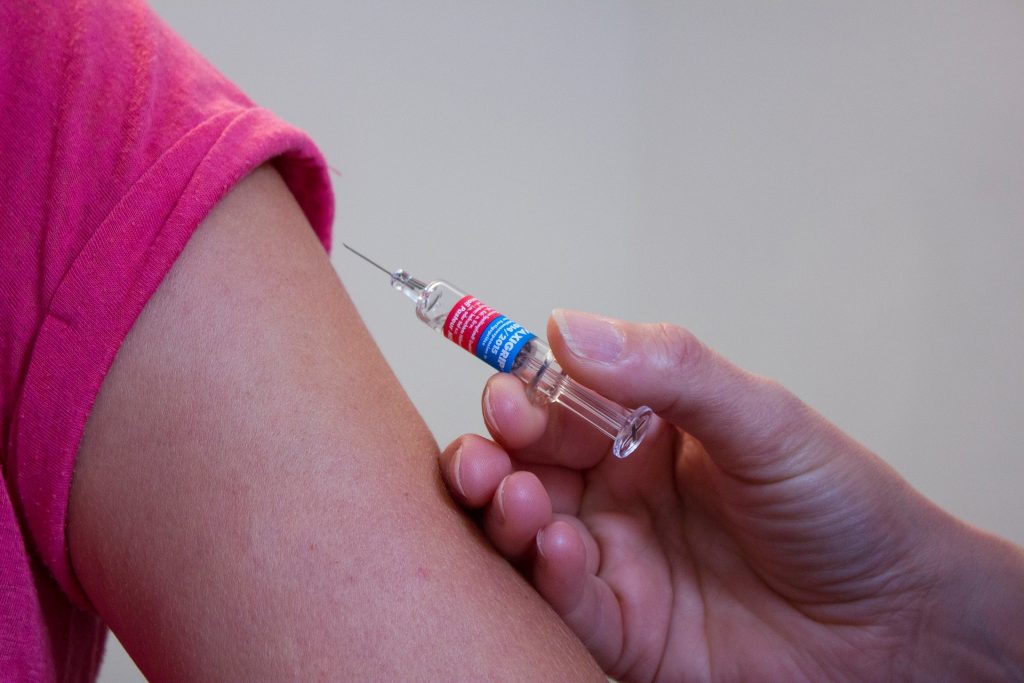With an alarming drop in vaccination rates and measles on the rise, it is essential to consider the movement behind vaccine hesitancy.
By Kimiya Asjadi
When the smallpox vaccine was developed by Edward Jenner in 1796 it was considered to be a scientific breakthrough ÔÇô one which was to be celebrated as the introduction of a simple measure to save lives. Fast-forward 200 years, and the World Health Organisation has labelled vaccine hesitancy as one of the top ten global health threats of 2019. The noble vaccine is now receiving more criticism than ever before.┬á
Vaccine scepticism is not a new phenomenon and has always been around to some extent. However, in recent years more and more people have been losing their faith in vaccines. In 1998, the British doctor Andrew Wakefield reported a link between the MMR vaccination and autism (and also bowel disease). Meanwhile in the USA, protesters began the ÔÇÿGreen our vaccines’ movement asking the government to remove the ÔÇÿtoxic’ preservative substances used in vaccines over fears about detrimental health effects. These two events launched the widespread ÔÇÿAnti-Vax’ movement. Anti-Vaxxers’ refuse personal vaccination or refuse to have their children vaccinated and generally believe that vaccines cause more harm than they do good.┬á This upsurge in support for vaccine hesitancy comes hand in hand with the rise in deadly outbreaks of disease. Measles is sweeping the globe with the UK alone seeing a 400% rise in measles between 2017 and 2018 as a result of the vaccination rates falling well below 95%- the figure deemed sufficient to provide herd immunity.
In November 2018, Ethan Lindenberger, a high school student from Ohio decided to get vaccinated despite his family’s anti-vaccination beliefs. He made national headlines as his post on Reddit asking for help on how he could go about getting vaccinated went viral. Lindenberger was invited to testify before a US senate committee hearing on vaccines and preventable disease outbreaks where he said his mother’s refusal to vaccinate him was informed partly by her research and misinformation about vaccines that she had found online. What Lindenberger speaks about is not just unique to his family.
Despite Andrew Wakefield’s work being proven untrue and ultimately retracted by the Lancet in 2011, it has not been enough to regain the trust of Anti-Vaxxers and instead, their following is increasing…
Why is this?
Information is misconstrued regularly on the internet and with social media acting as a vessel for assistance, stories are instantly shared and rapidly spread. In the modern age, it takes only one bad experience to be posted by an understandably distressed parent for it to snowball and make national news. Equally, it takes only one person to share false information about vaccines on social media for it to spread to the masses. How the reader decides to digest this information will then impact their stance on vaccinations. If the reader chooses to take these facts at face value (which many of us do regularly when we read things on the internet) without doing any of their own research, then the post will have recruited another anti-vaxxer without providing any real evidence.
Vaccine hesitancy is also fuelled by results from public debates around the medical, ethical and legal issues related to vaccines. Interestingly a correlation has been found between countries in which the highest percentage of the vote is for populist parties and percentages of vaccine scepticism. This is thought to be because of a distrust in elites and experts. The vaccine hesitancy in this case stems from a more complex anti-establishment fuelled ideology that purports that the experts are surfing on the fears of the population in order to gain power and profit. In this case, it is difficult to challenge these views on vaccines as they are a by-product of core political beliefs. It does not mean, however, that the experts in their scientific fields do not hold a responsibility to become better engaged with the parents who are reluctant to vaccinate their children as opposed to dismissing their arguments.

The difficulties arise when anti-vaxxers are condemned for their beliefs as this creates a dangerous divide between the ÔÇÿbelievers’ and ÔÇÿnon-believers’-leading to the lack of ability to converse. In an interview in a recent BBC documentary about vaccine hesitancy, the French Health Minister said “To not feed conspiracy theories, you don’t punish them, but fight back with scientific arguments ÔÇô with proof”. On occasion this can prove to be difficult as often anti-vaxxers will only have knowledge of the results that confirm their belief and will reject scientific evidence which counters their arguments. However, it is important that these conversations are had, and that people are challenged on both sides until a better understanding is formed.
Unfortunately, we still have a long way to go before we manage to combat this issue. The decision of anti-vaxxers not to vaccinate themselves or their children does not just affect them, it poses a risk to everyone they come into contact with. France is one of the world’s most vaccine doubting countries with many French people leaning towards alternative medicine. However, last year France made it mandatory for all children to receive 11 vaccines or be barred from school. This is not the first time in history where vaccines have been made mandatory and certainly won’t be the last if the anti-vax movement continues to persist. We need to provide parents with better education and understanding of the actual risks as well as the benefits of vaccinations instead of belittling them when they appear fearful of them.


